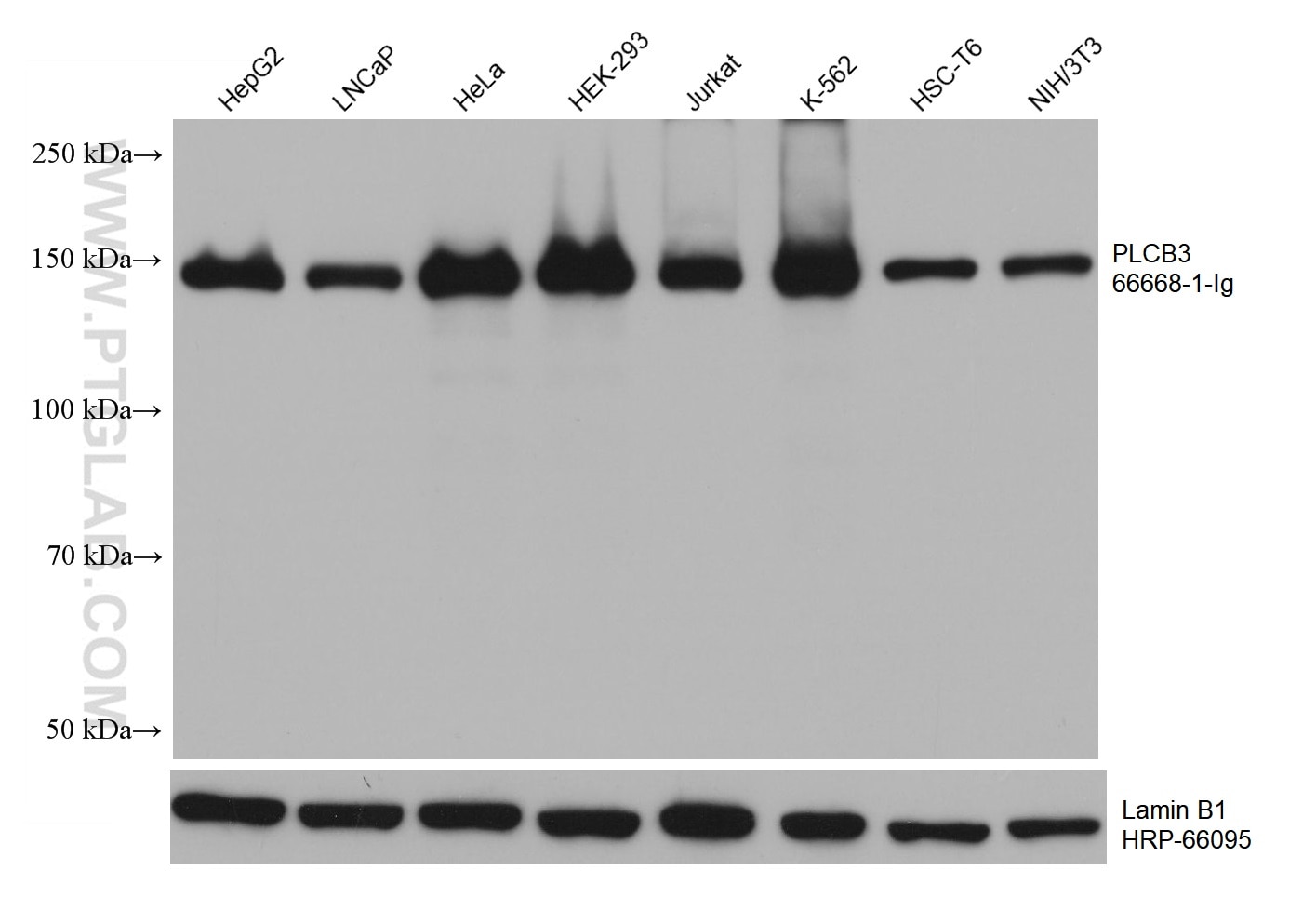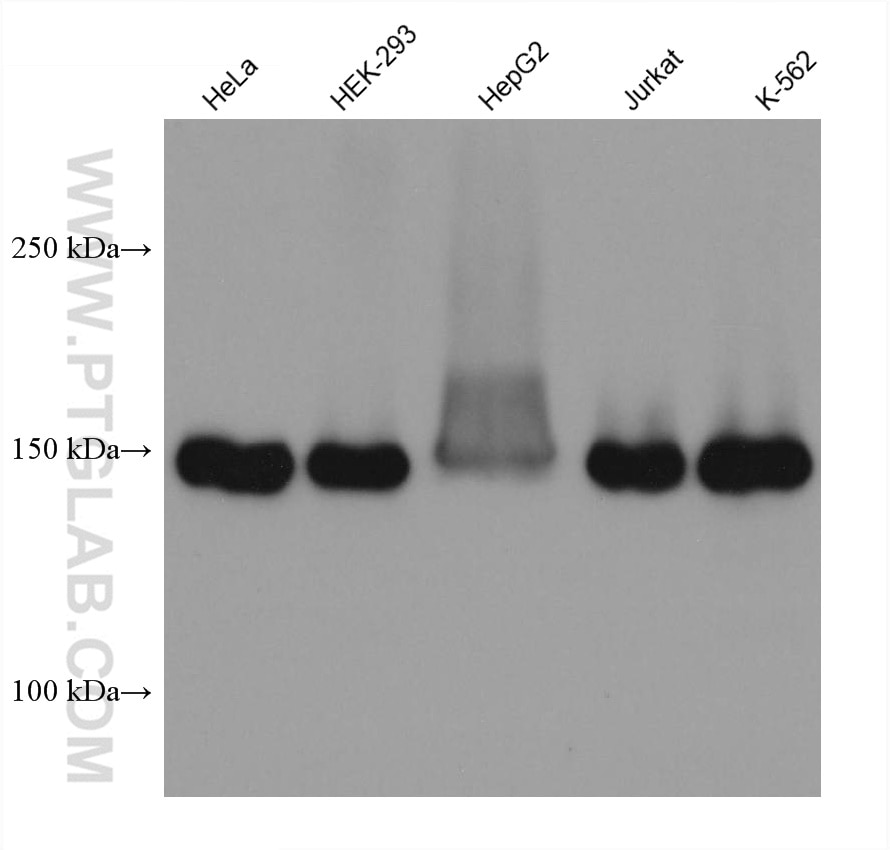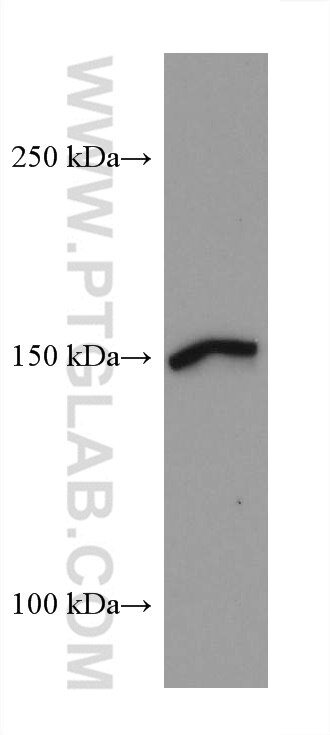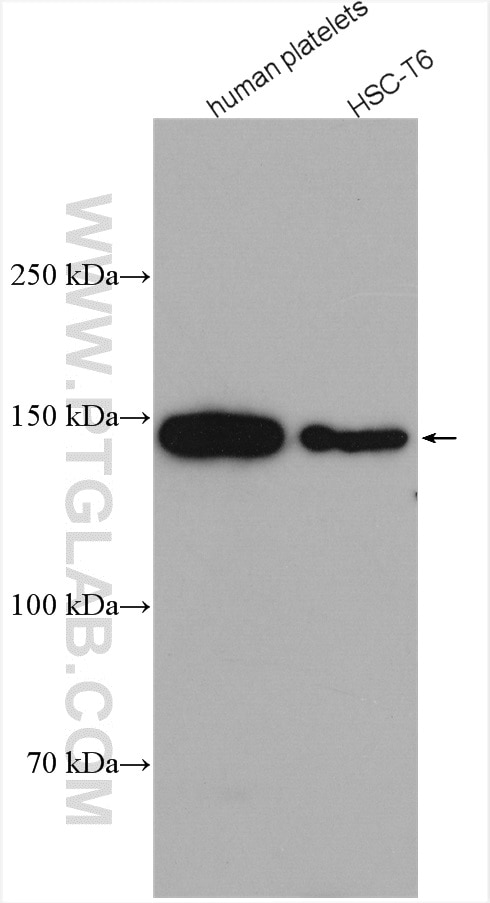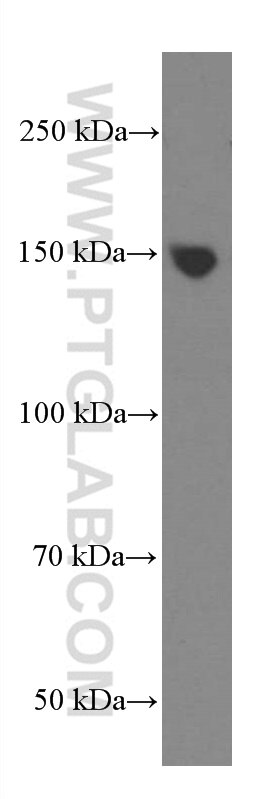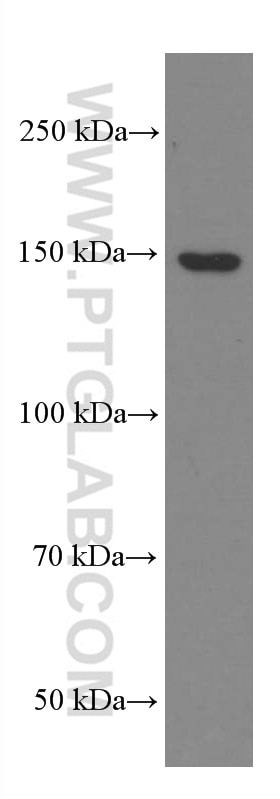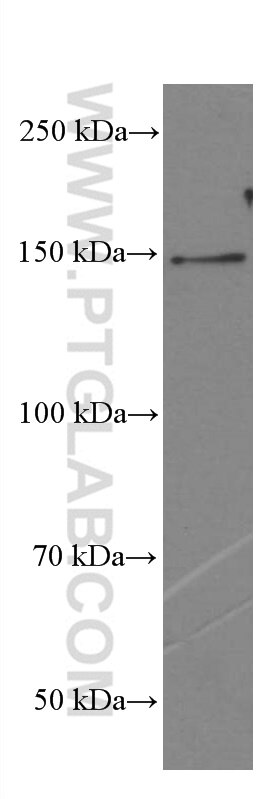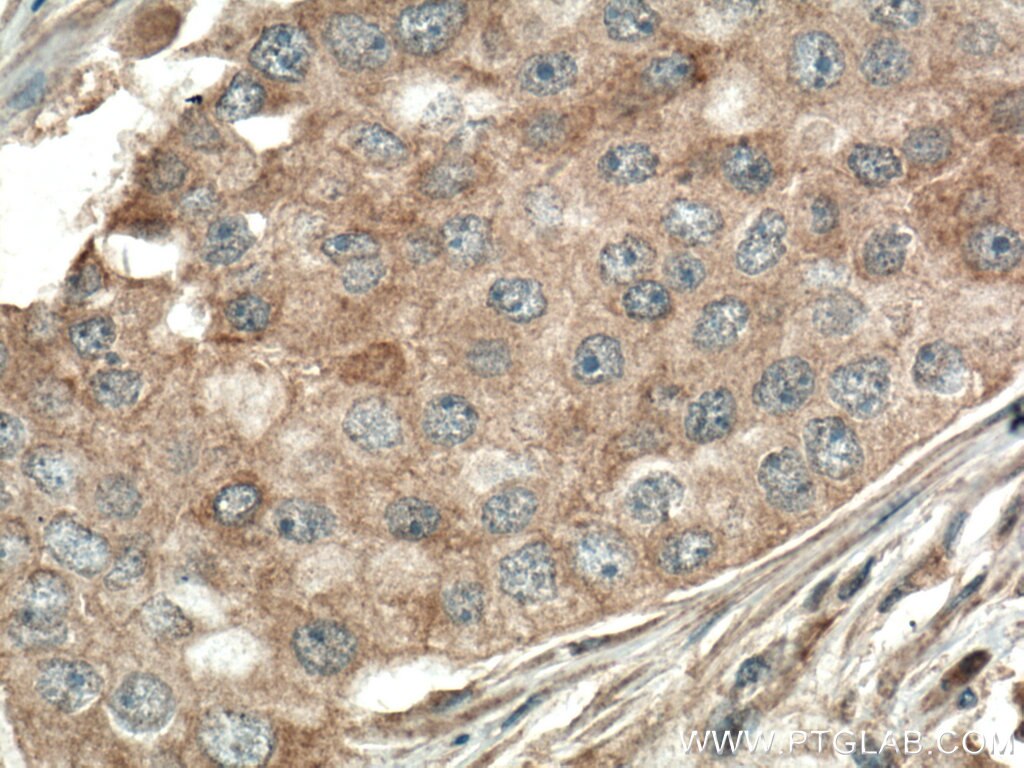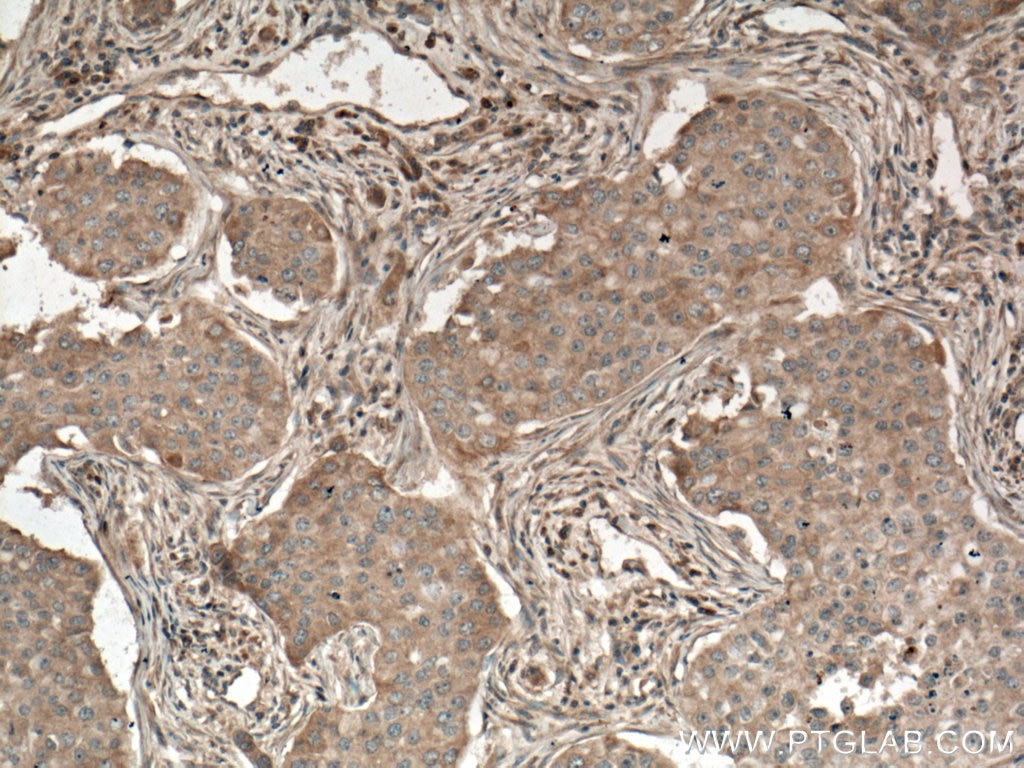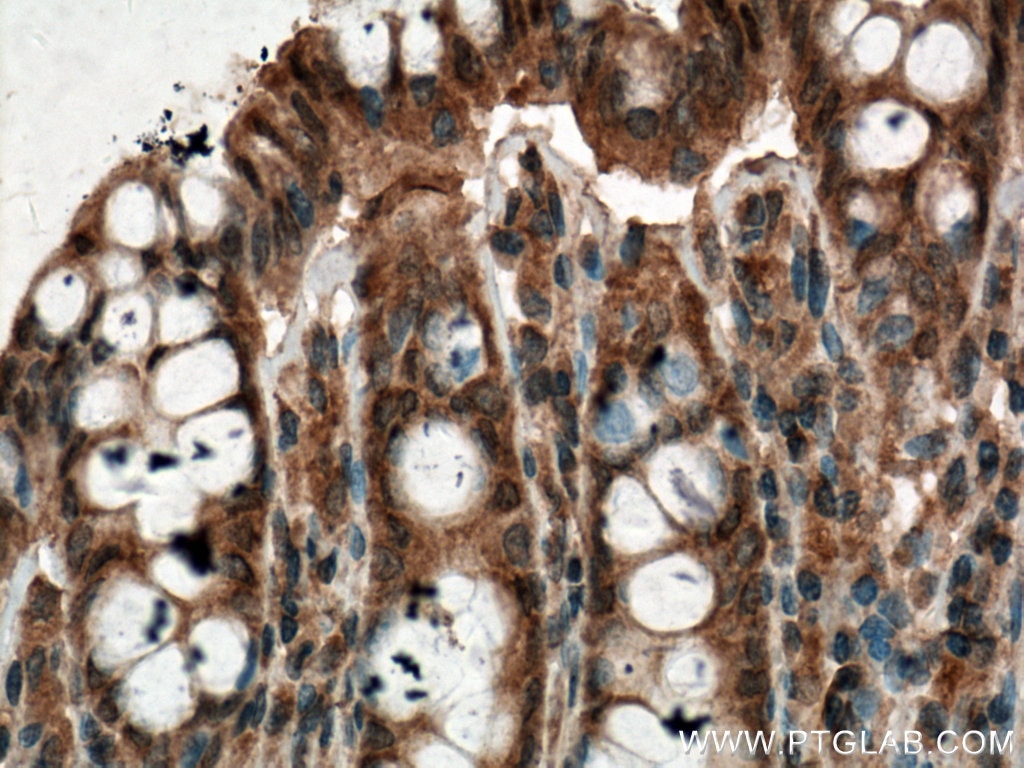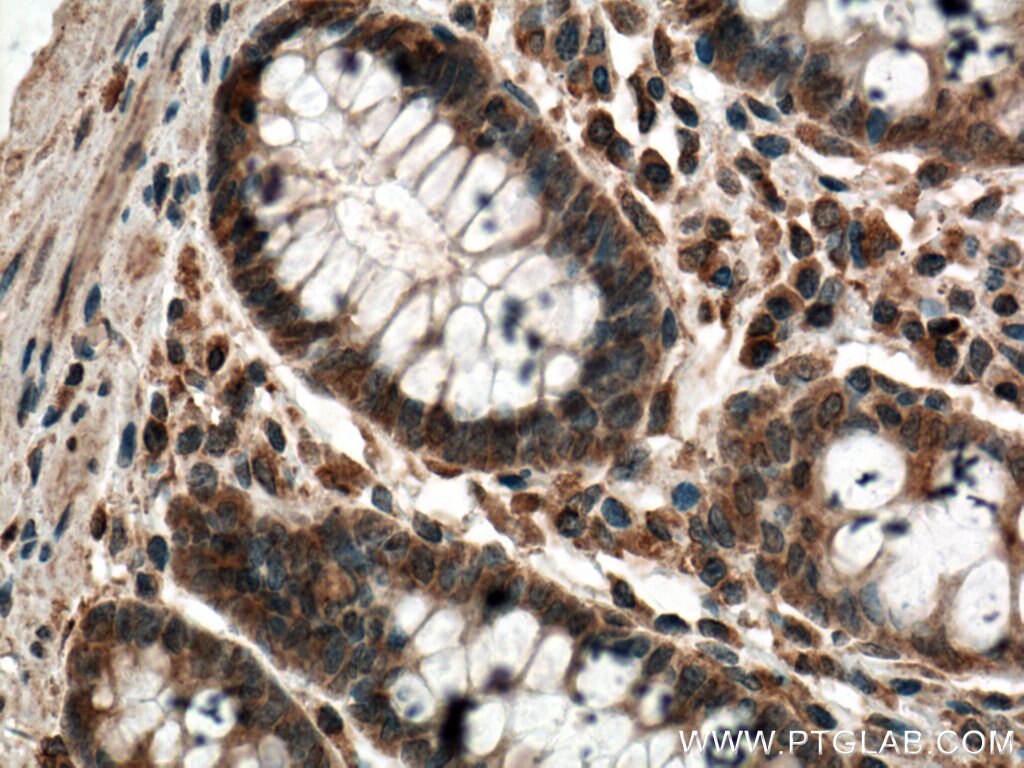PLCB3 Monoklonaler Antikörper
PLCB3 Monoklonal Antikörper für IHC, WB, ELISA
Wirt / Isotyp
Maus / IgG1
Getestete Reaktivität
human, Maus, Ratte
Anwendung
WB, IHC, ELISA
Konjugation
Unkonjugiert
CloneNo.
1B8B3
Kat-Nr. : 66668-1-Ig
Synonyme
Galerie der Validierungsdaten
Geprüfte Anwendungen
| Erfolgreiche Detektion in WB | HepG2-Zellen, HEK-293-Zellen, HeLa-Zellen, Jurkat-Zellen, K-562-Zellen, LNCaP-Zellen, NIH/3T3-Zellen, Sp2/0-Zellen |
| Erfolgreiche Detektion in IHC | humanes Mammakarzinomgewebe, humanes Kolongewebe Hinweis: Antigendemaskierung mit TE-Puffer pH 9,0 empfohlen. (*) Wahlweise kann die Antigendemaskierung auch mit Citratpuffer pH 6,0 erfolgen. |
Empfohlene Verdünnung
| Anwendung | Verdünnung |
|---|---|
| Western Blot (WB) | WB : 1:5000-1:50000 |
| Immunhistochemie (IHC) | IHC : 1:50-1:500 |
| It is recommended that this reagent should be titrated in each testing system to obtain optimal results. | |
| Sample-dependent, check data in validation data gallery | |
Veröffentlichte Anwendungen
| WB | See 3 publications below |
Produktinformation
66668-1-Ig bindet in WB, IHC, ELISA PLCB3 und zeigt Reaktivität mit human, Maus, Ratten
| Getestete Reaktivität | human, Maus, Ratte |
| In Publikationen genannte Reaktivität | Ratte |
| Wirt / Isotyp | Maus / IgG1 |
| Klonalität | Monoklonal |
| Typ | Antikörper |
| Immunogen | PLCB3 fusion protein Ag15845 |
| Vollständiger Name | phospholipase C, beta 3 (phosphatidylinositol-specific) |
| Berechnetes Molekulargewicht | 1234 aa, 139 kDa |
| Beobachtetes Molekulargewicht | 150 kDa |
| GenBank-Zugangsnummer | BC142681 |
| Gene symbol | PLCB3 |
| Gene ID (NCBI) | 5331 |
| Konjugation | Unkonjugiert |
| Form | Liquid |
| Reinigungsmethode | Protein-G-Reinigung |
| Lagerungspuffer | PBS mit 0.02% Natriumazid und 50% Glycerin pH 7.3. |
| Lagerungsbedingungen | Bei -20°C lagern. Nach dem Versand ein Jahr lang stabil Aliquotieren ist bei -20oC Lagerung nicht notwendig. 20ul Größen enthalten 0,1% BSA. |
Hintergrundinformationen
PLCB3 is a member of the phosphoinositide phospholipase C beta enzyme family that catalyze the production of the secondary messengers diacylglycerol and inositol 1,4,5-triphosphate from phosphatidylinositol in G-protein-linked receptor-mediated signal transduction. Six subfamilies of PLCs (B, G, D, E, Z and H) constitute part of ubiquitous signaling cascades that translate hormonal signals into intracellular events, leading to alternations in cell function. PLCB isoforms 1-4 are stimulated by G-protein activation (Gαq/11 and/or Gβγ). Independent of its enzymatic activity, PLCB3 inhibits the proliferation of hematopoietic stem cells (HSCs) and myeloid cells.
Protokolle
| Produktspezifische Protokolle | |
|---|---|
| WB protocol for PLCB3 antibody 66668-1-Ig | Protokoll herunterladen |
| IHC protocol for PLCB3 antibody 66668-1-Ig | Protokoll herunterladen |
| Standard-Protokolle | |
|---|---|
| Klicken Sie hier, um unsere Standardprotokolle anzuzeigen |
Publikationen
| Species | Application | Title |
|---|---|---|
J Cell Mol Med Prenatal hypoxia inhibited propionate-evoked BK channels of mesenteric artery smooth muscle cells in offspring. | ||
J Food Biochem A novel di-peptide Met-Glu from collagen hydrolysates inhibits platelet aggregation and thrombus formation via regulation of Gq-mediated signaling. | ||
J Food Sci Tripeptide Hyp-Asp-Gly from collagen peptides inhibited platelet activation via regulation of PI3K/Akt-MAPK/ERK1/2 signaling pathway |
